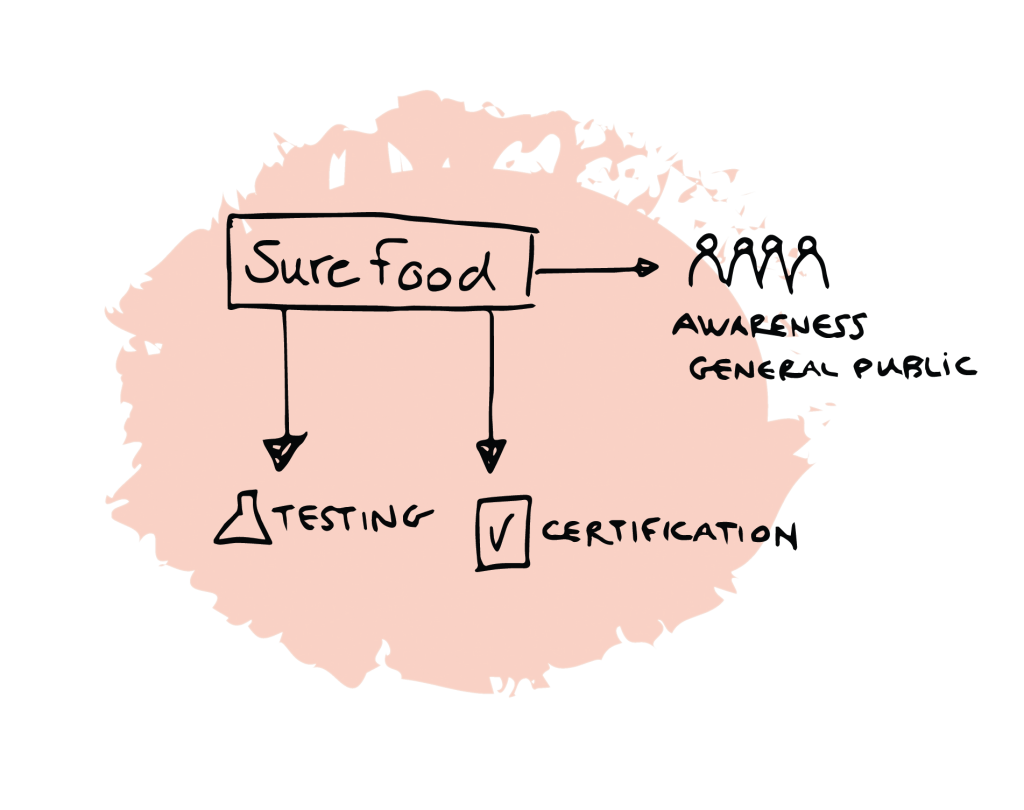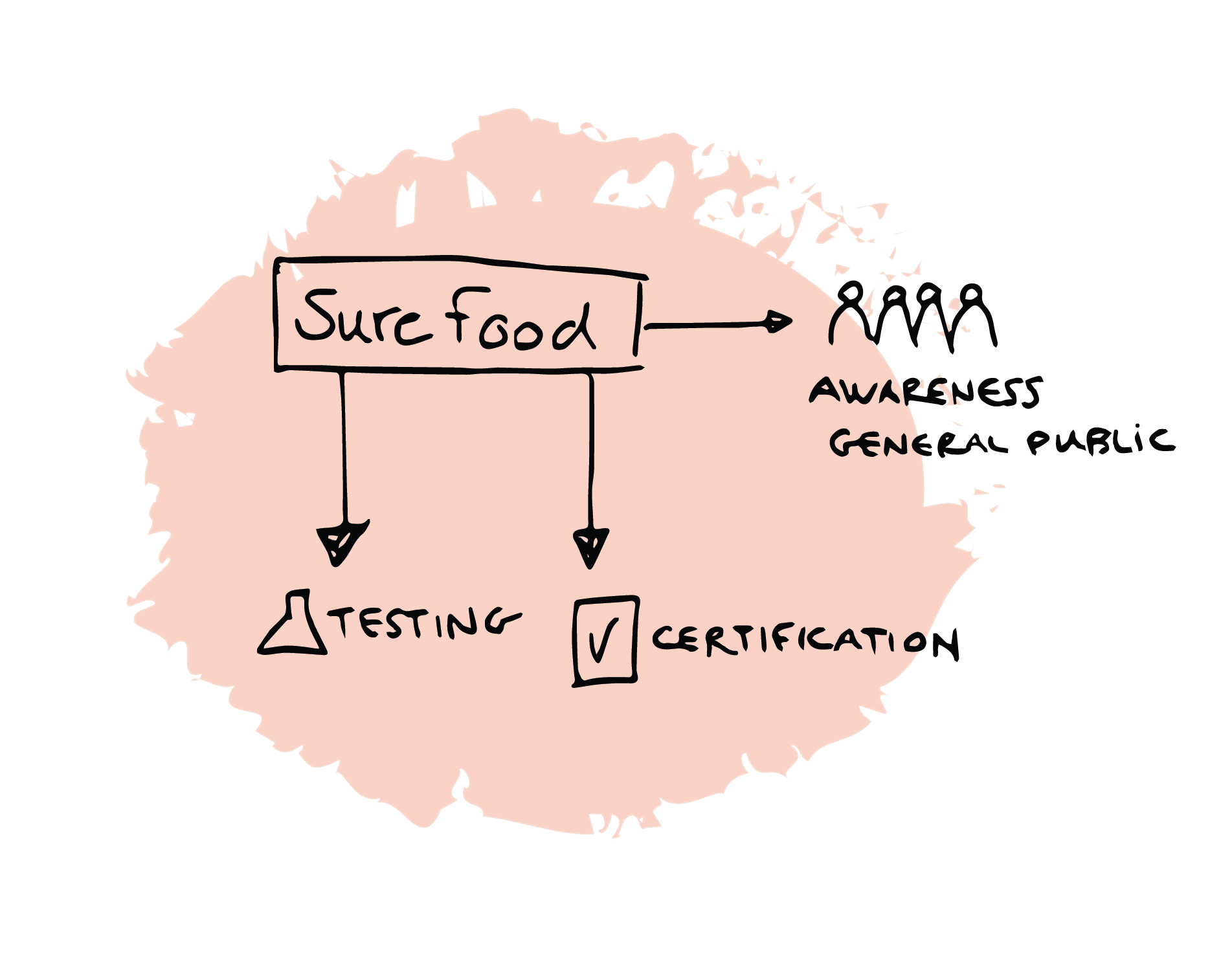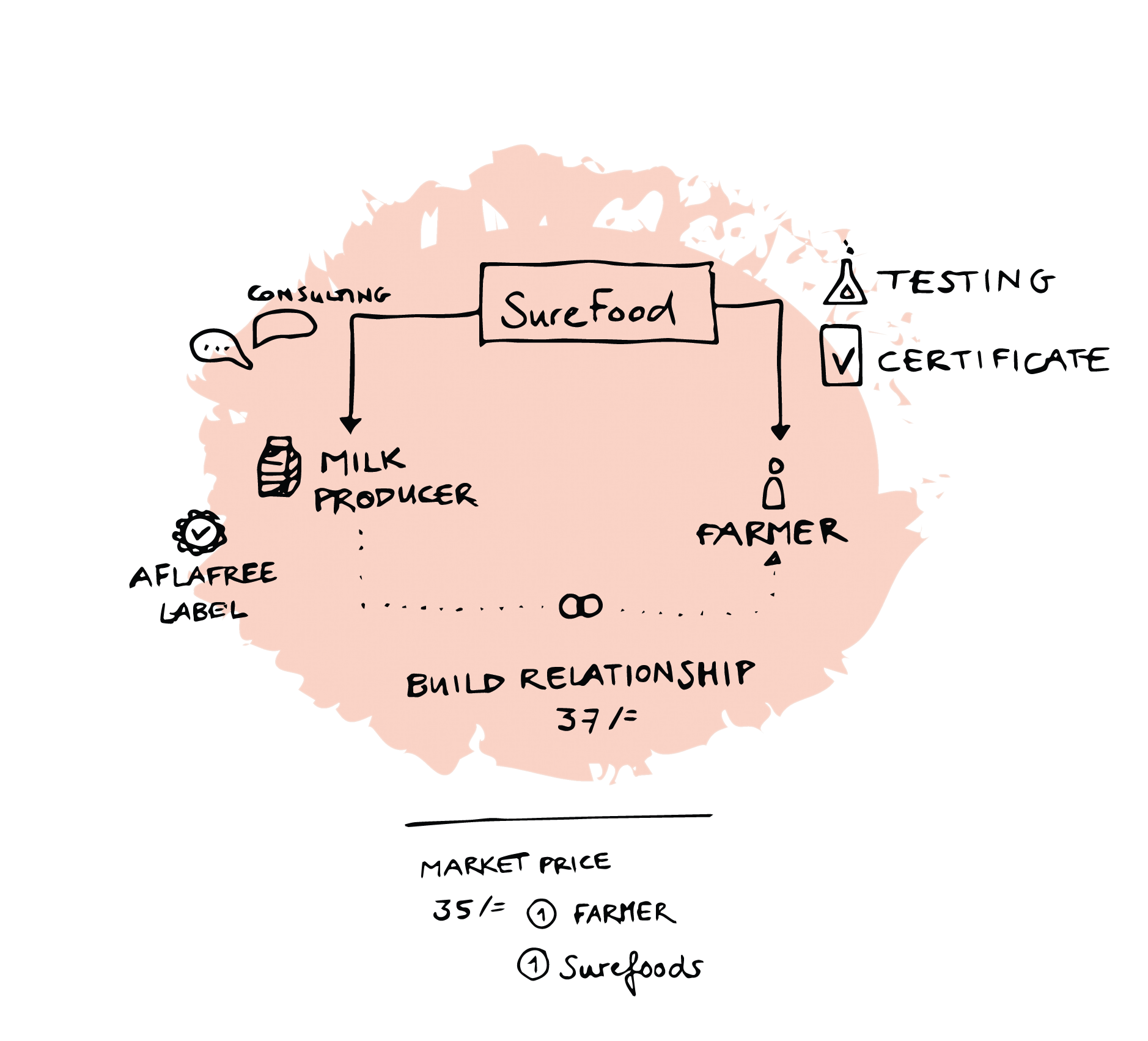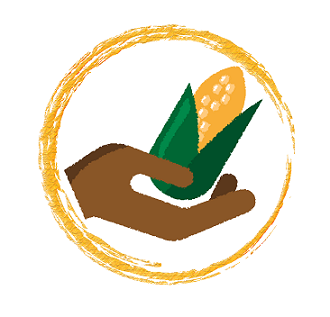
SureFoods, a preliminary business model concept
At the Nairobi Innovation Week (NIW) we all concluded that there is a demand for high quality foods like maize and milk, but this demand is unmet in the products available in the supermarket. This is a tough brief to start with. However together we came up with various ideas.The winner of the afternoon co-creation sessions at the NIW was SureFoods. It was developed in a team of students from our project, academia and experts on food safety issues in both the private and public sector.

SureFoods aims to create higher quality products by
- Testing of products at an affordable pricing
- Certification to earn trust of partners and customers
- Raise awareness amongst the general public
This way the producers get the tools to create high quality products, meanwhile raising the awareness of customers and increasing the demand.
So how does it work? The illustration below is a simple flowchart that shows the key elements of the concept. Nowadays, it is hard for milk producers to find the right quality feed to produce safe milk. SureFoods helps them by creating partnerships with farmers. These farmers are reliable because SureFoods provides testing and certification services and the incentive to test the products. The milk producer consults SureFoods to ask which farmer meets their standards to partner up with. SureFoods sets up the relationship and enables the milk producer to have access to tested, high quality feed. With this feed high quality of the milk is produced that is safe and branded with the Aflafree label.

The first question that arises is ‘Who is going to pay for the testing? The farmer surely cannot do that…’
A simple money flow goes as follows: Lets say the market price of unsafe milk is 35 schillings and that the safe milk can be sold for a higher price of 37 schillings. Then one schilling goes to the farmer to pay for the testing, and one schilling goes to SureFoods.
To conclude, SureFoods enables profitable collaborations between milk producers and farmers whilst giving the farmers the incentive to test the quality. Ultimately this is raising the quality & safety of the milk you can buy in the supermarket.
